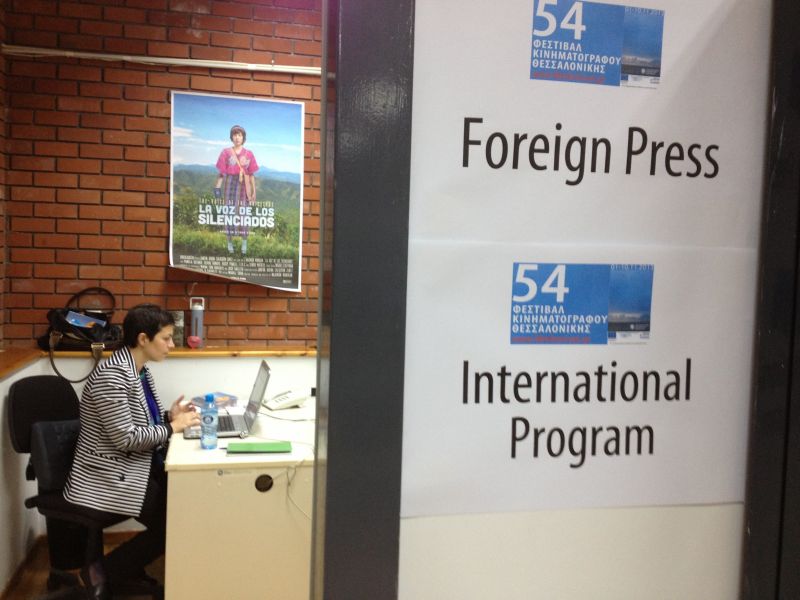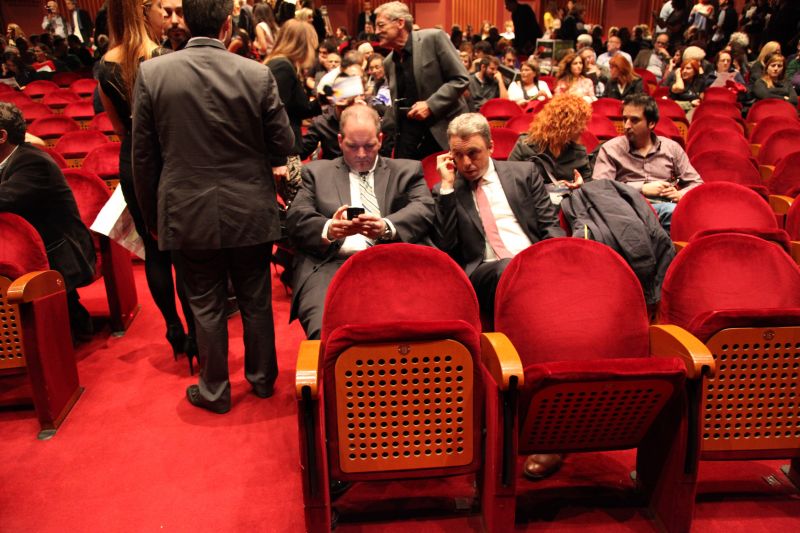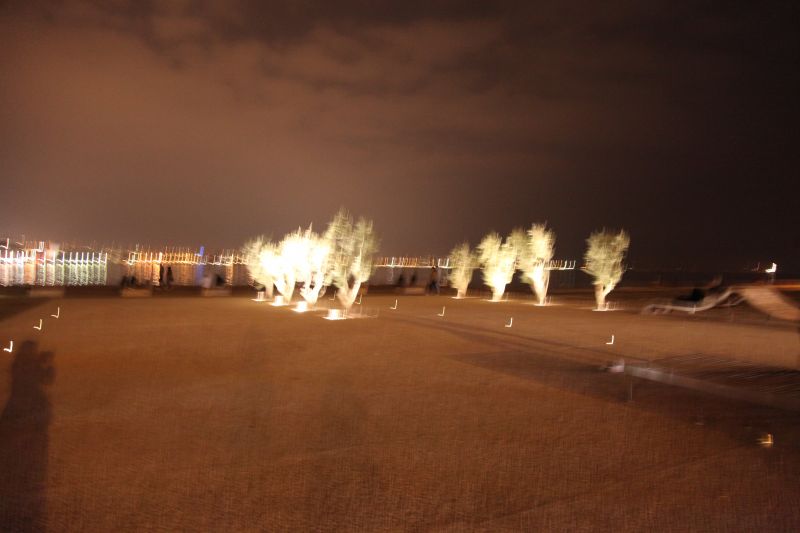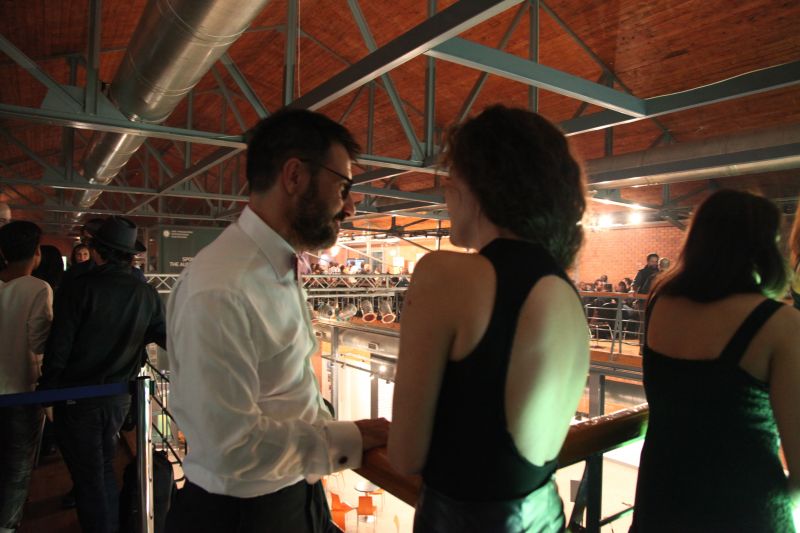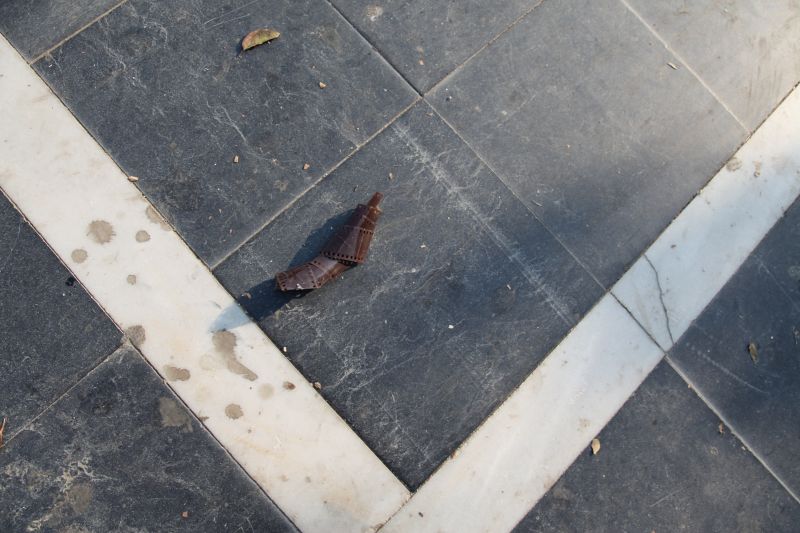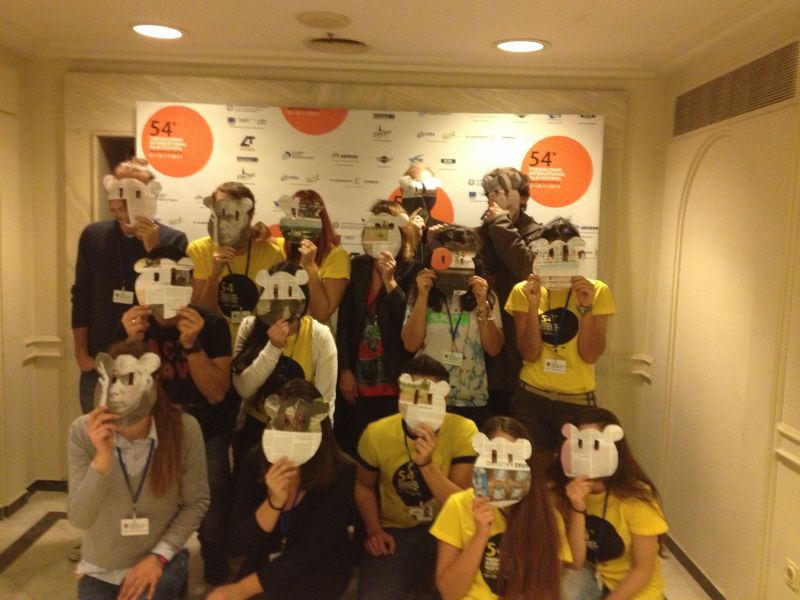|
|
||
|
Pro Tools
FILMFESTIVALS | 24/7 world wide coverageWelcome ! Enjoy the best of both worlds: Film & Festival News, exploring the best of the film festivals community. Launched in 1995, relentlessly connecting films to festivals, documenting and promoting festivals worldwide. Working on an upgrade soon. For collaboration, editorial contributions, or publicity, please send us an email here. User login |
INTERVIEW WITH: Apichatpong Weerasethakul
Apichatpong Weerasethakul: Vanessa McMahon interviews Apichatpong Weerasethakul
INTERVIEW WITH Apichatpong Weerasethakul.
During the 51st Thessaloniki Film Festival, I had the grand pleasure to speak at length with Mr. Apichatpong
In Thessaloniki, Joe was an honorary guest in the ‘Independence Days' portion of the festival where he held press conferences, masterclasses, interviews and Q and A's regarding his films, all of which were screened during
Let the interview between 'Joe' and I begin:
JOE: Is it okay to interview with all this sound?
(A LOUD BAND struck up next door)
ME: Yes, well, this is a funny and informal setting to be sure.
JOE: Where are you from? (noticing I am not Greek)
ME: From California and from all over. And you are from Thailand in the region near Laos?
JOE: Yes, that's where I grew up but now I live in the north.
ME: Awesome. Well, first of all, I want to congratulate you on winning the Palme d'Or. Can you share with us a little about what that was like?
JOE: It was like... going to Mars... (we all laughed) It was so surreal. I didn't expect to win such an honor. I mean, for me just to be there was already enough because it was a time when the Thailand political situation was very intense. I was just thinking about home because I worry about home, but with the prize I forget my home. It was so unexpected for a small personal film but Tim Burton said that it's a film that had taken him to a different world and then I could
ME: Your film is termed a ‘multi-platform Primitive' film. Can you explain what that means?
JOE: Well, the film ‘Uncle Boonmee' is a feature film, right, and it's part of this project called ‘Primitive' that has several lives that. I mean, there's installation, and also short film online, short film cinema and also kind of an artist book network that exists in a kind of media style and ‘Uncle Boonmee' is the last part of a project we started in 2007.
ME: So, it's about multiple lives as well as multiple forms of cinema as well.
JOE: Yes, the film itself is about layers of different styles of cinema that I grew up with in the past that I think they are disappearing and dying or constantly transforming...
ME: And you filmed it entirely near the border of Laos?
JOE: Uh, it's quite near. It's a city not far from the Mekong River that separates Thai and Laos and has a lot of deep trouble about the history.
ME: And it's close to your history as well?
JOE: Well, not really. I really have to be there and just to explain time and to learn from the older generations who have passed through the 60s that had this violence. Well, now I am talking about the Primitive project, the primitive
(Here the BAND next door began to play louder)
ME: Uh Oh, now I have to speak louder as we're competing with the band, our soundtrack coming from next door.
JOE: I like it actually!
(We Both laughed and ‘Joe' sipped from his water. He remained cool and sweet, modest and ready for anything)
Me: Can you speak about themes about the film...about the memories, the transformation, extinction and communism in 1965. I mean, the different layers you used to make a kind of hybrid film.
JOE: Yeah, ‘hybrid' is the word because the film is like a combination of many things and also I could summarize a summary of other films that I had done in the past ten years and it's more like a celebration of memory so they had these layers of different styles and also a reunion of the characters from the past films that come together in the end.
ME: That's really interesting. And you say that this film is not a political film. It's more of a personal journey.
JOE: Right. Right. Somehow there's a political issue that I couldn't overlook because it's there at certain time. When we talk about the landscape. The landscape has its own memory and I think that the political side is one of them.
ME: I also read that this is kind of a tribute for you for a death of cinema as we know it. You filmed it in 16mm. So, what do you feel is the death of cinema?
JOE: Well, I hope that it's not dead. I mean, it's not dying. That's why I say it's transforming in the digital age and technology. I feel that we have to adapt but at the same time we have to cherish what we've done before and to remember this beauty that now everyone is kind of embracing the digital medium and I think the aesthetics change but somehow there's a beauty that I would like to introduce also to say to the young generation like ‘hey, this beauty exists and that you know it's still not dying. You can still make films and there's a kind of certain kind of beauty that cannot be replaced by digital.'
ME: Like David Lynch who won the Palme d'Or for Mulholland Drive, your films are also very reflexive and require a lot of thought put into them from the audience.
JOE: Well, for me, the audience has to be very very passive or very very active to enjoy the film. In the passive way, you just don't need to think. It's just like going to a foreign country and travel on a train or a bus and just look out of
ME: You really give people that sense throughout the film, of the moments where one must watch passively and also actively... Is Uncle Boonmee a metaphor or a symbol for something greater that you would like to speak about or is that something you would prefer people sort of to infer to on their own?
JOE: Yeah, for me I would prefer that they take their own experience. I got several feedback that sometime that wasn't what I intended but it's what they take the history or for example someone that they were close to died and when they watch the movie they feel something special about that person and about death also and so that's a good thing. I mean, one good approach.
ME: Do people ever tell you that they appreciate your film more after seeing it than when they were actually watching it? That perhaps they didn't understand it while watching it, but then later after thinking about it, they could
JOE:
ME: So, what is your next project? And will you continue to film with actual film?
JOE: Well, the next project will be 2013. I hope. And I don't know. By that time I don't know what technology will bring but I hope that film still exists then.
ME: Can you tell us about the book that ‘Uncle Boonmee' is based on? What was it about this book that made you feel it had to be a film?
JOE: Well, because my previous films always deal with memory. My home memory. And this book talks about a man who remembered several lives through centuries that like how to make memories he had. So that drew me to it and then I was stuck for a while because of how to present it visual way. In the end, after several years, I decided okay, let's put the book as an inspiration and I put a lot of myself in and just have the book only as a springboard.
ME: I like how you introduce almost every genre in this film. Basically, your film is the anti-film. I mean, everything that schools teach as textbook for filmmaking, you go completely at against the grain. You mix all these genres together and yet it works in such a poetic and raw way.
JOE: (laughs) It works for some!
ME: Yeah, it works for some. It's definitely a film that sticks with you and you keep thinking about it afterwards. It's like when you're in the midst of an experience, you cannot understand it; but somehow looking back you can see it things more clearly. That is how your film affects people.
JOE: Yeah, what I mean by dreams. You cannot really somehow explain it or just flashes on events and time is not linear. So, I try with this film and other films to operate like our minds like when we dream or when we try to remember certain things. We're not totally focused. Our minds are like monkeys going here and there.
ME: I love the scene where you have the monk and the woman on the bed and at the restaurant at the same time. Almost like when you're in a moment but you're not really there.
JOE: Yes, it kind of suggests that time could be not only one layer. It could be the same parallel universe that has the other you, another you.
ME: There definitely seems to be a trend with non-linear storytelling today. It somehow speaks to people subconsciously whether they understand it or not.
JOE: Well, I think that maybe with technology and the internet for sure people have a shorter attention span and also the with the layer of the web. It's not solid. It's something that you just click and it disappears. It's something that exists in the clouds so maybe that's one of the aspects of the layers being nonlinear and just jumping into many dimensions.
ME: How did you get into film? What was your journey to get you here where you are now?
JOE: I was a timid and really shy person from a small town. And a movie is a tool to communicate so I was really...I know I loved movies. When I studied I discovered experimental films, especially American experimental films. And that films that could be done by one person and also experimenting with friends and so I was very fascinated and hooked by that. But then when I went back to Thailand I had to change the way and put it into more narrative because of the culture and how to express myself and gradually I became more and more... I had to connect to people and I had to open up instead of being more introvert and film changed me in a way and that's how I came to be a filmmaker.
ME: And now you're here! So, tell me... like the monk in Uncle Boonmee while he's sitting on the bed watching TV, his other body is in a restaurant... So, during this interview, where would you say your other body is?
JOE: (laughs) Hopefully on the beach!
ME: LOL! Yes, on the beach watching the beautiful Thessaloniki sunset! I don't blame you! Well, I can't tell you how much a pleasure this interview has been.
JOE: Thank you! No No It's been my pleasure.
And then Mr. Weerasethakul and I shook hands, spoke about the festival and then he moved on toward his hotel to recover from his jetlag. What a triumph he has achieved and what an inspiration!
Interview conducted and transcribed by Vanessa McMahon
December 08, 2010
See more on Apichatpong Weerasethakul in TIFF here: http://www.filmfestival.gr/default.aspx?lang=en-US&loc=1&&page=607&newsi...
See trailer for Uncle Boonmee here: http://www.youtube.com/watch?v=Jk-EoUb0nvg
13.12.2010 | Thessaloniki International Film Festival's blog Cat. : 24 Hours 9 Albums Apichatpong Weerasethakul Apichatpong Weerasethakul Artist BOONMEE WHO California Cinema of Thailand Company Founded Contact Details Entertainment Entertainment Films http://www.filmfestival.gr/default.aspx?lang=en-US&loc=1& http://www.youtube.com/watch?v=Jk-EoUb0nvg INTERVIEW WITH: Apichatpong Weerasethakul Laos Like David Lynch Palme d'Or Quotation Technology Technology Thai people Thailand the 2010 Cannes Film Festival the 51st Thessaloniki Film Festival the Palme d'Or Tim Burton Uncle Boonmee Who Can Recall His Past Lives Vanessa McMahon
|
LinksThe Bulletin Board > The Bulletin Board Blog Following News Interview with IFTA Chairman (AFM)
Interview with Cannes Marche du Film Director
Filmfestivals.com dailies live coverage from > Live from India
Useful links for the indies: > Big files transfer
+ SUBSCRIBE to the weekly Newsletter Deals+ Special offers and discounts from filmfestivals.com Selected fun offers
> Bonus Casino
User imagesAbout Thessaloniki International Film Festival Industry: CROSSROADS Co-Production Forum,AGORA, script-development BALKAN FUND. Competition for directors with 1st or 2nd films. Golden Alexander Prize 37.000 € Coverage by Vanessa McMahon, Laurie Gordon View my profile Send me a message The EditorUser contributions |



















